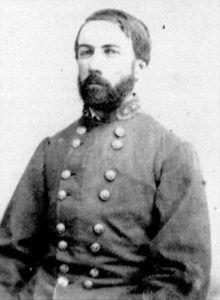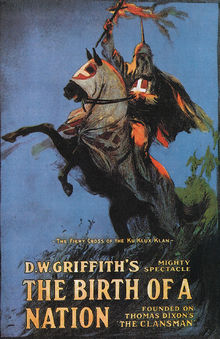Elias Hill
Elias Hill (c. 1819 - March 28, 1872) was a Baptist minister and leader of a York County, South Carolina congregation that emigrated to Arthington, Liberia.
In May 1871, during the Reconstruction era, he was among the victims in a series of attacks in York County against local blacks by members of the Ku Klux Klan.
His situation received wide attention on account of his condition, as Hill had been stricken by an illness while a child which had left him crippled with his arms and legs in a withered state.
[2] In February 1871, Hill met with local Ku Klux Klan (KKK) leaders to negotiate the safety of blacks in the community.
[5] The mob visited several other homes of men involved in the Union League militia, succeeding in gathering 23 guns but no other members.
Companies B, E, and K of George Armstrong Custer's Seventh U.S. Cavalry led by Major Lewis Merrill arrived in the area to try to quell the violence,[6] Hill stepped in to lead the League, now in disarray.
[7] This was the first episode of Ku Klux Klan violence which Merrill witnessed in York County, and he was unable to step in to protect the black citizens.
Eight days after the attack, Merrill met with community leaders demanding change, although violence continued over the summer.
[8] Hill was afraid for his life and contacted Congressman Alexander S. Wallace and the American Colonization Society, seeking to escape the United States.
Before leaving, he testified before a congressional committee that emigration was the best solution: "We do not believe it is possible from the past history and present aspect of affairs, for our people to live in this country peaceably and educate and elevate their children to any degree which they desire.
"[3] At least 21 of the 31 households that were part of the Clay Hill emigrant group either had suffered Klan attacks or had near relatives in York County who had been victims.
They sailed to Liberia on the Edith Rose, a trip that included 243 regular passengers and two stowaways, all former slaves like Hill, except for the youngest and a few freedmen.
Liberia's president, Edward James Roye, was overthrown in late 1871 in the wake of a financial scandal and was assassinated in early 1872.

